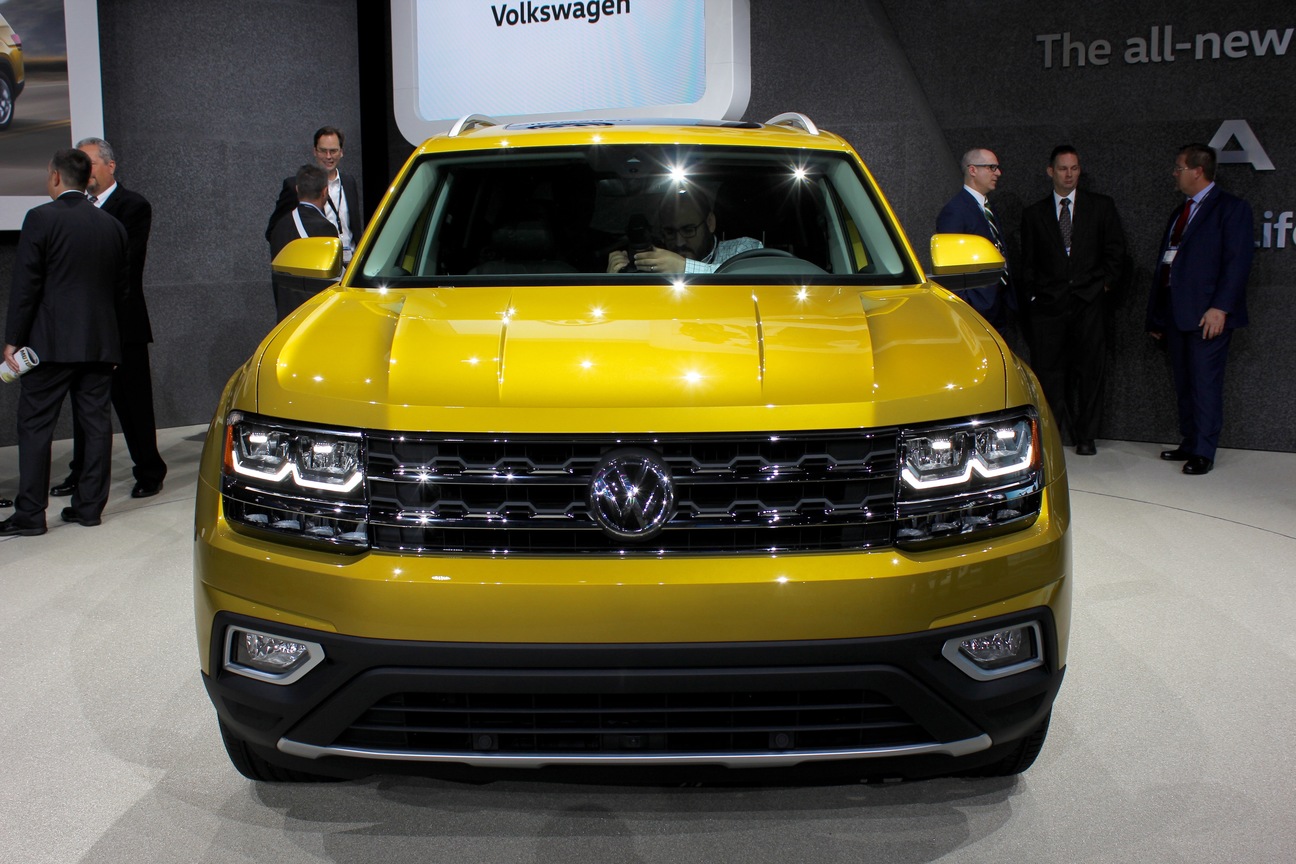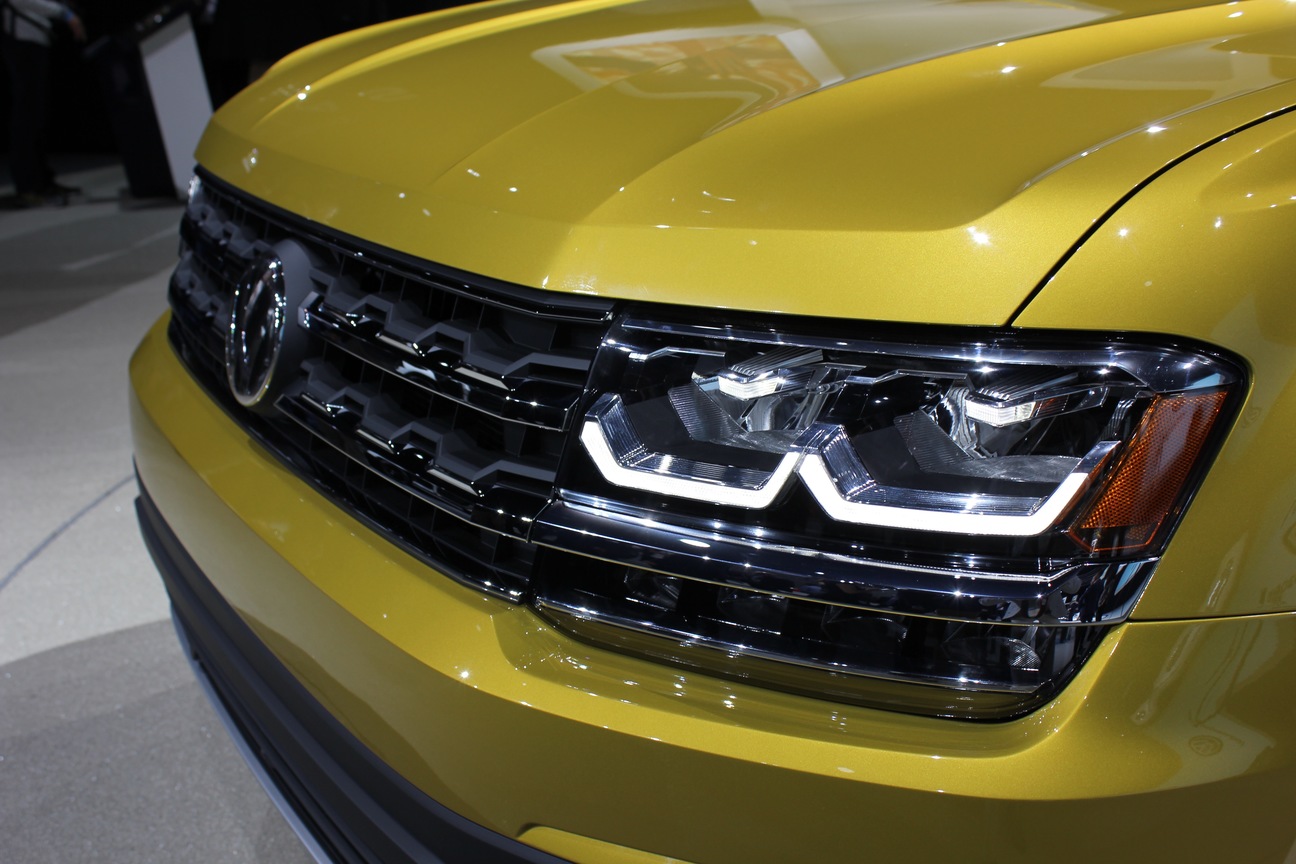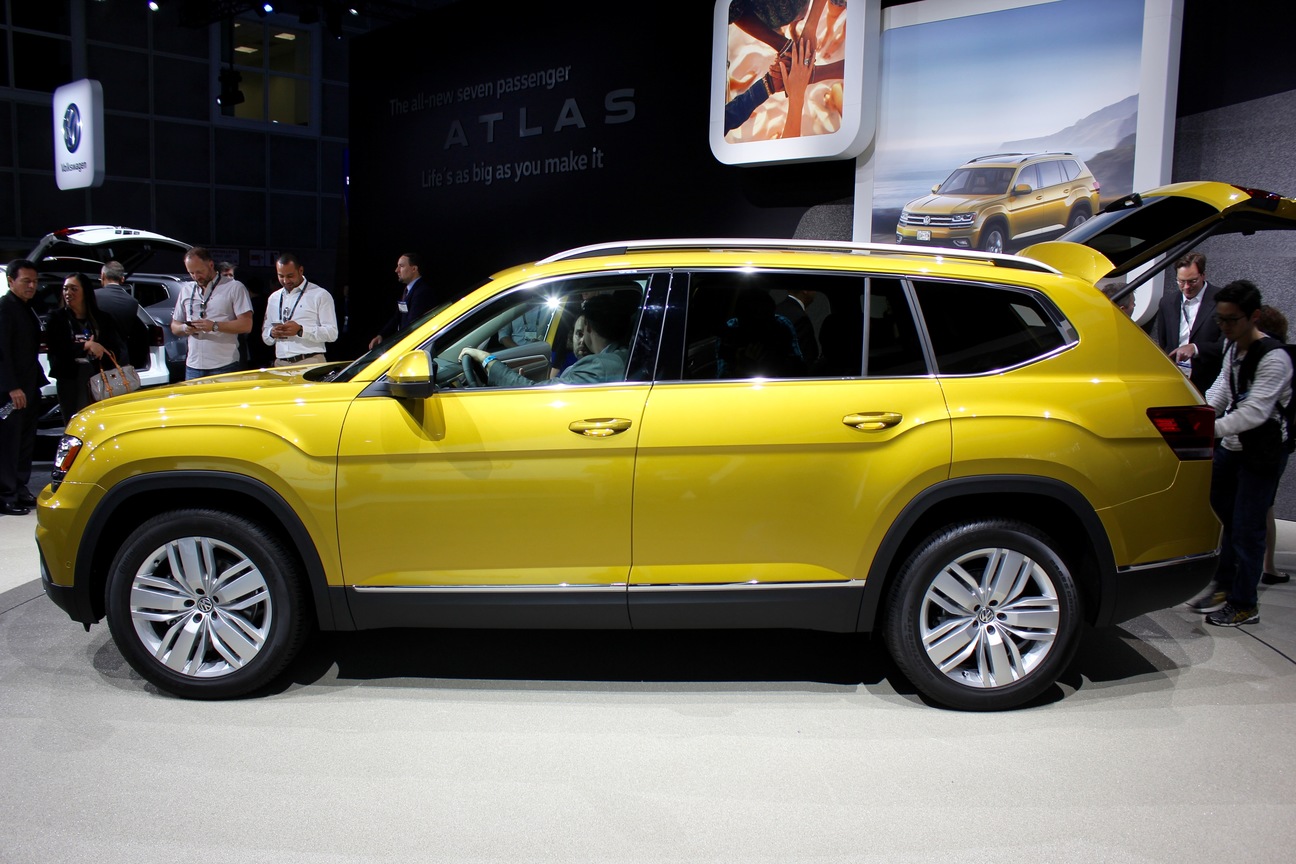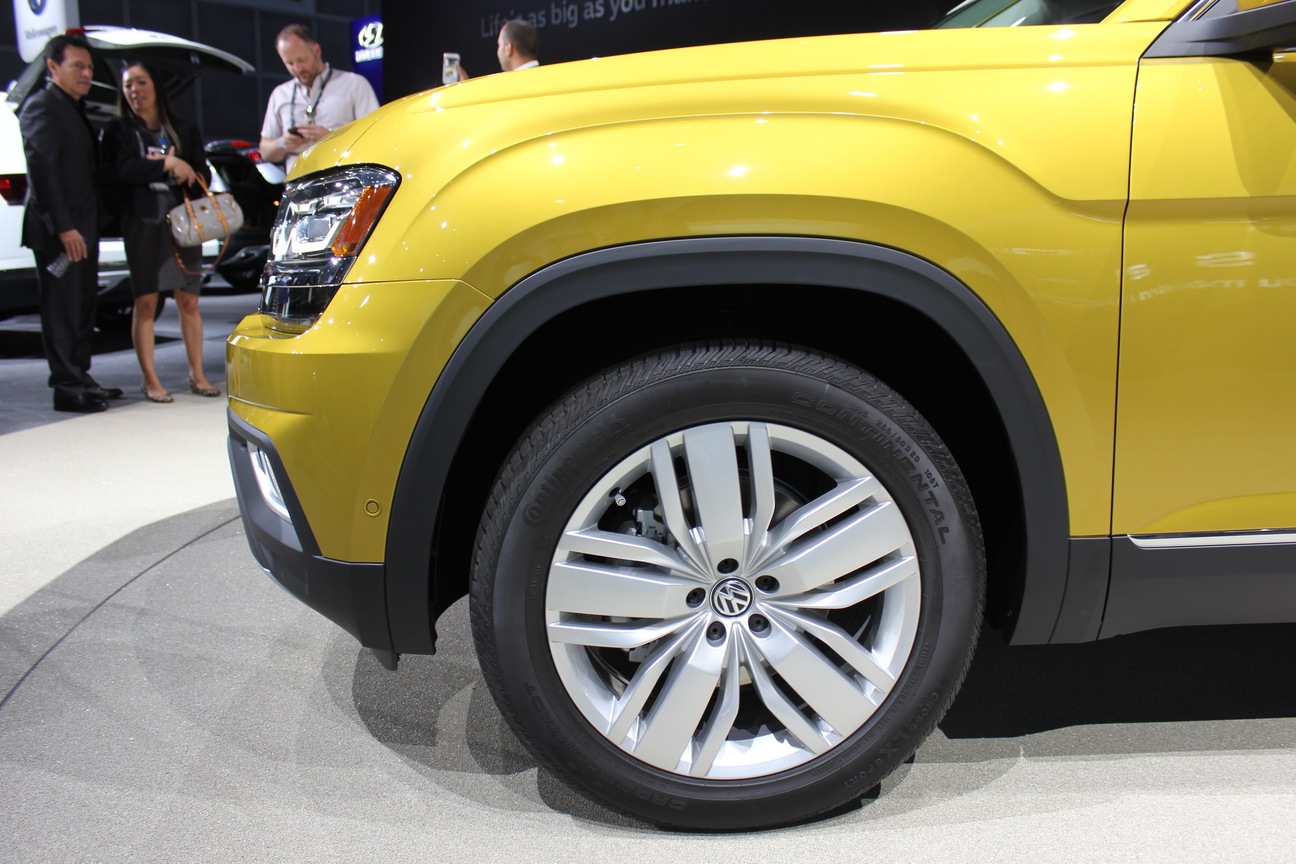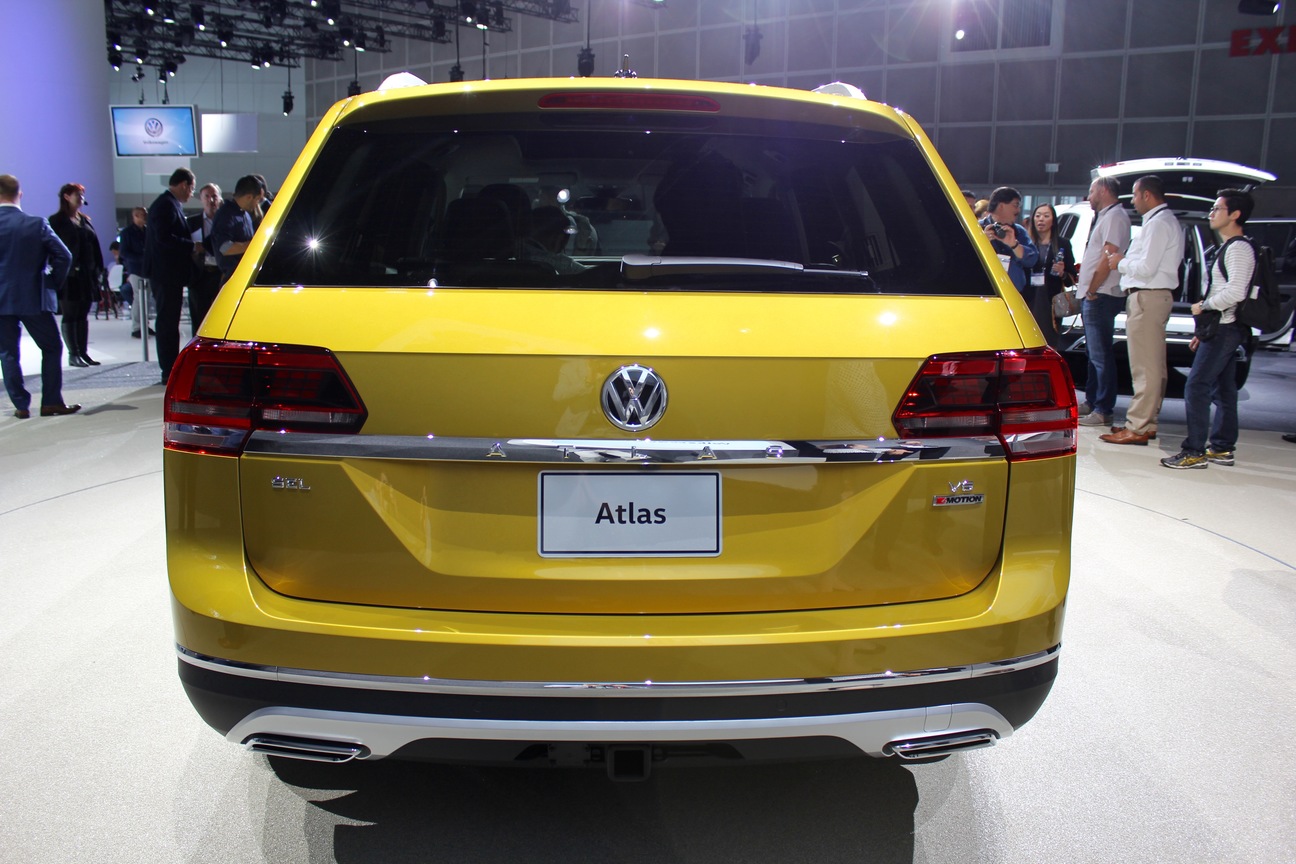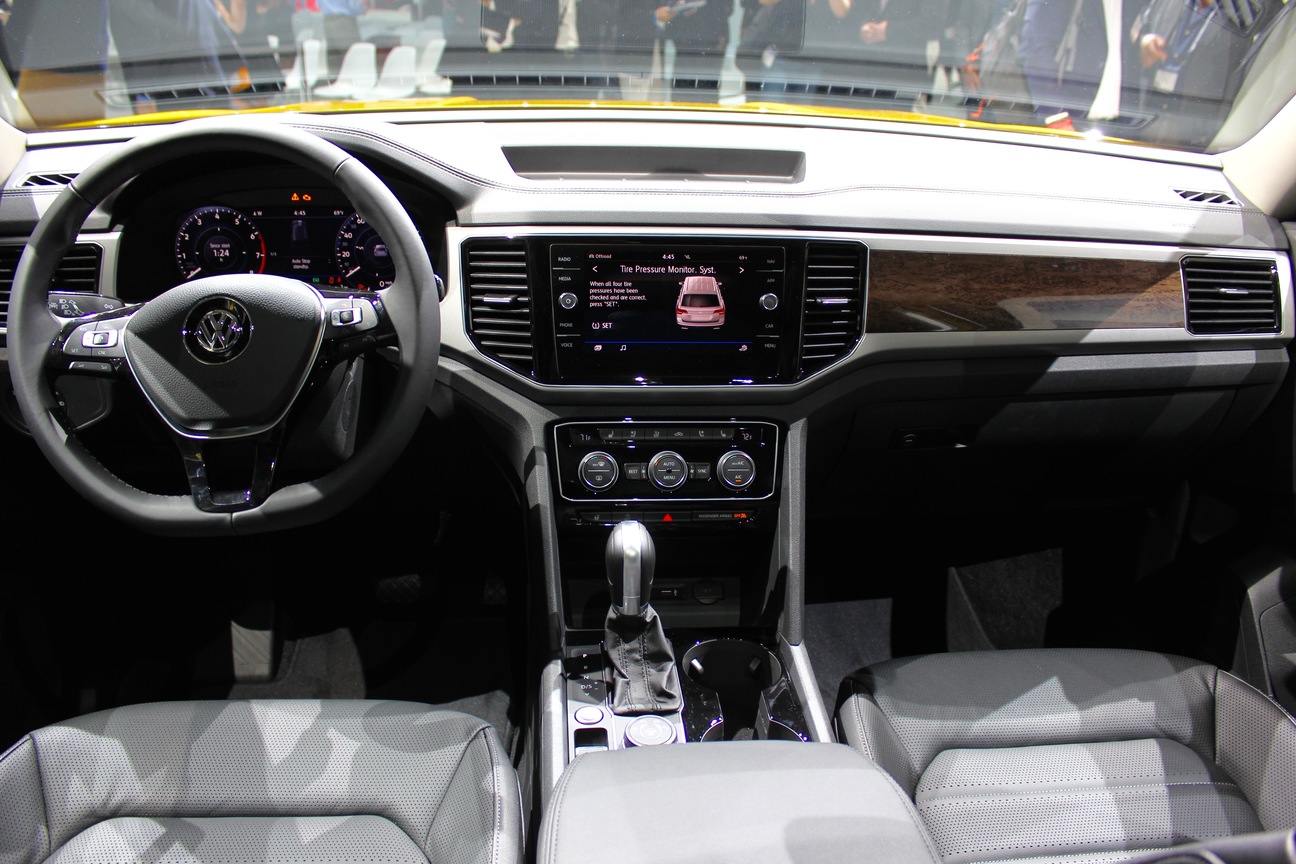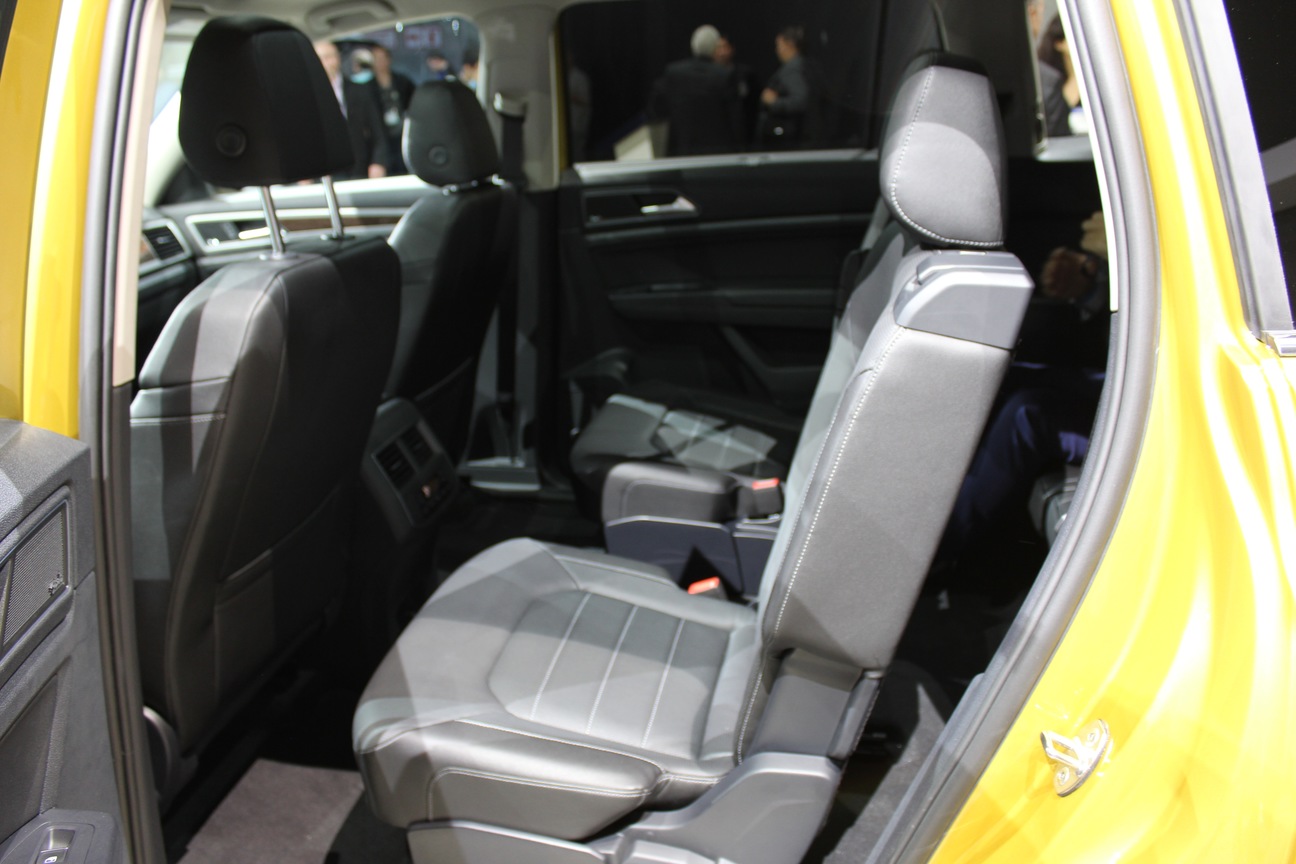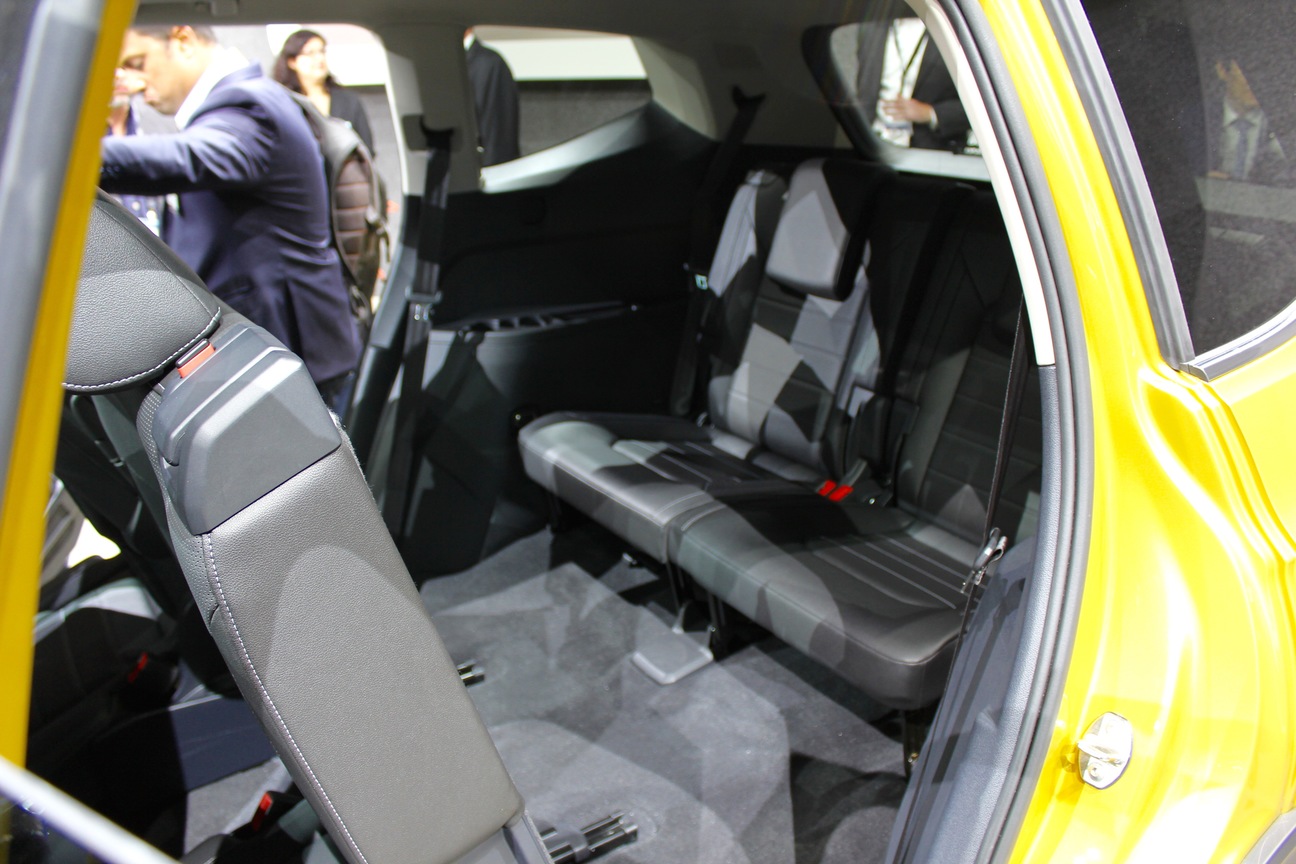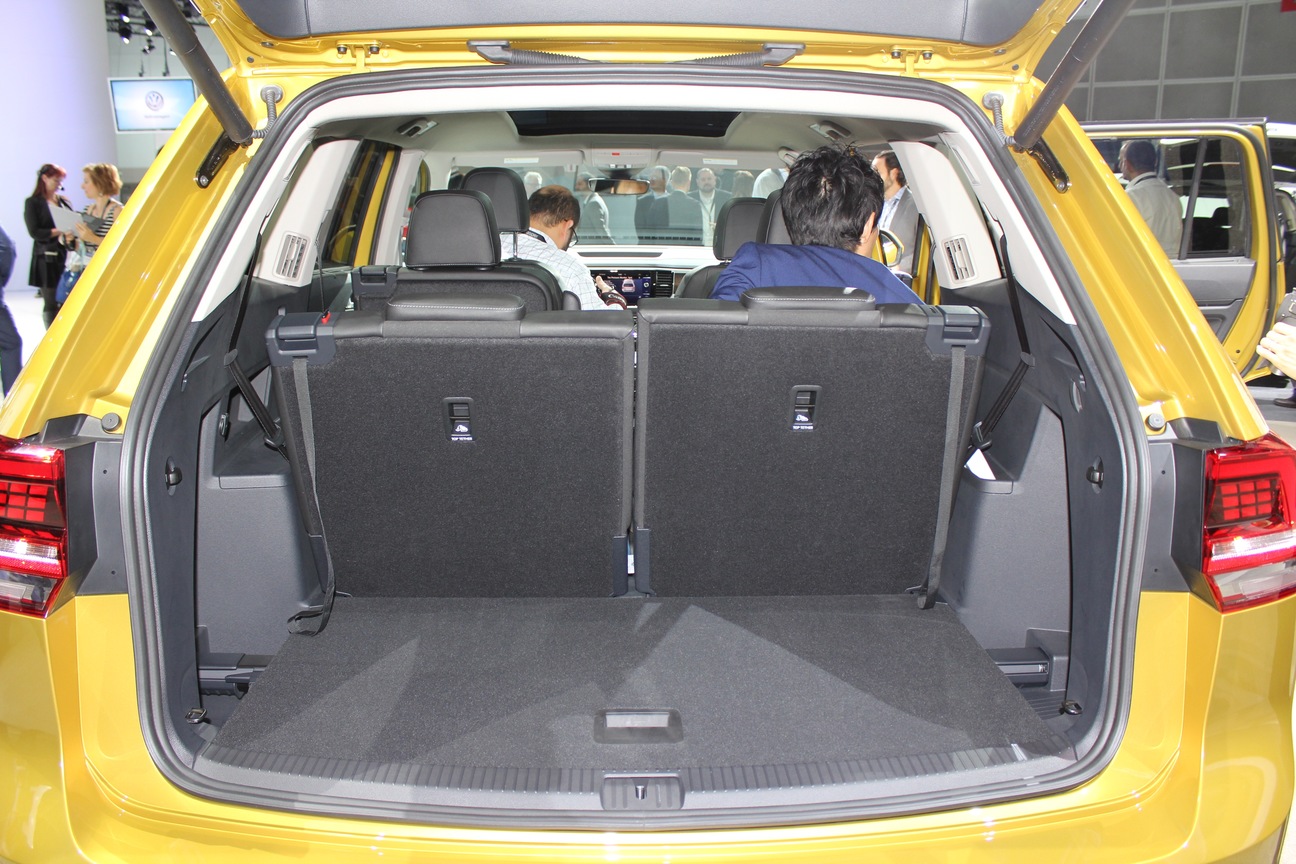The 2018 Volkswagen Atlas is a crucial model for VW as it works to recover from the “Dieselgate” scandal. It’s a seven-seat SUV tailored specifically for the U.S. market at a time when sales of SUVs are booming. So can the Atlas carry the weight of Volkswagen’s future on its shoulders?
When it goes on sale next year, the Atlas will be the largest VW model sold in the U.S. Yet it uses the same MQB platform as the Golf and the Audi A3. Volkswagen promises plenty of room for seven passengers and their luggage, meaning the Atlas will compete against family haulers like the Honda Pilot and Toyota Highlander, not to mention minivans.
Read more: 2016 Volkswagen Golf GTE first drive
Some minivans may actually be more stylish than the Atlas. Its boxy shape definitely communicates the fact that this is an SUV, and ties the Atlas to other Volkswagen models, but it doesn’t offer much pizzazz. At least it will look distinctive at night, thanks to standard LED headlights. LED daytime running lights are standard as well, with LED taillights optional.
While the styling is restrained, the amount of technology isn’t. The Atlas will be available with Apple CarPlay and Android Auto, a 12-speaker Fender audio system, and a Volkswagen Digital Cockpit reconfigurable dashboard display. It will also get a full suite of safety features, including adaptive cruise control, lane departure warning, park assist, autonomous emergency braking, and a post-collision braking system meant to keep the car from moving after an initial collision.
Volkswagen will offer two engine options at launch: a 238-horsepower 2.0-liter turbocharged four-cylinder, and a 280-hp VR6 (basically a V6, but more compact). Both engines will be paired with an eight-speed automatic transmission. Front-wheel drive will be standard, with all-wheel drive available on VR6 models.
In addition to being designed for the U.S. market, the Atlas will also be built here. It will be assembled at the same Chattanooga, Tennessee, plant that builds the Passat midsize sedan. VW just spent $900 million upgrading the facility to handle the SUV. The Atlas launches this coming spring.

